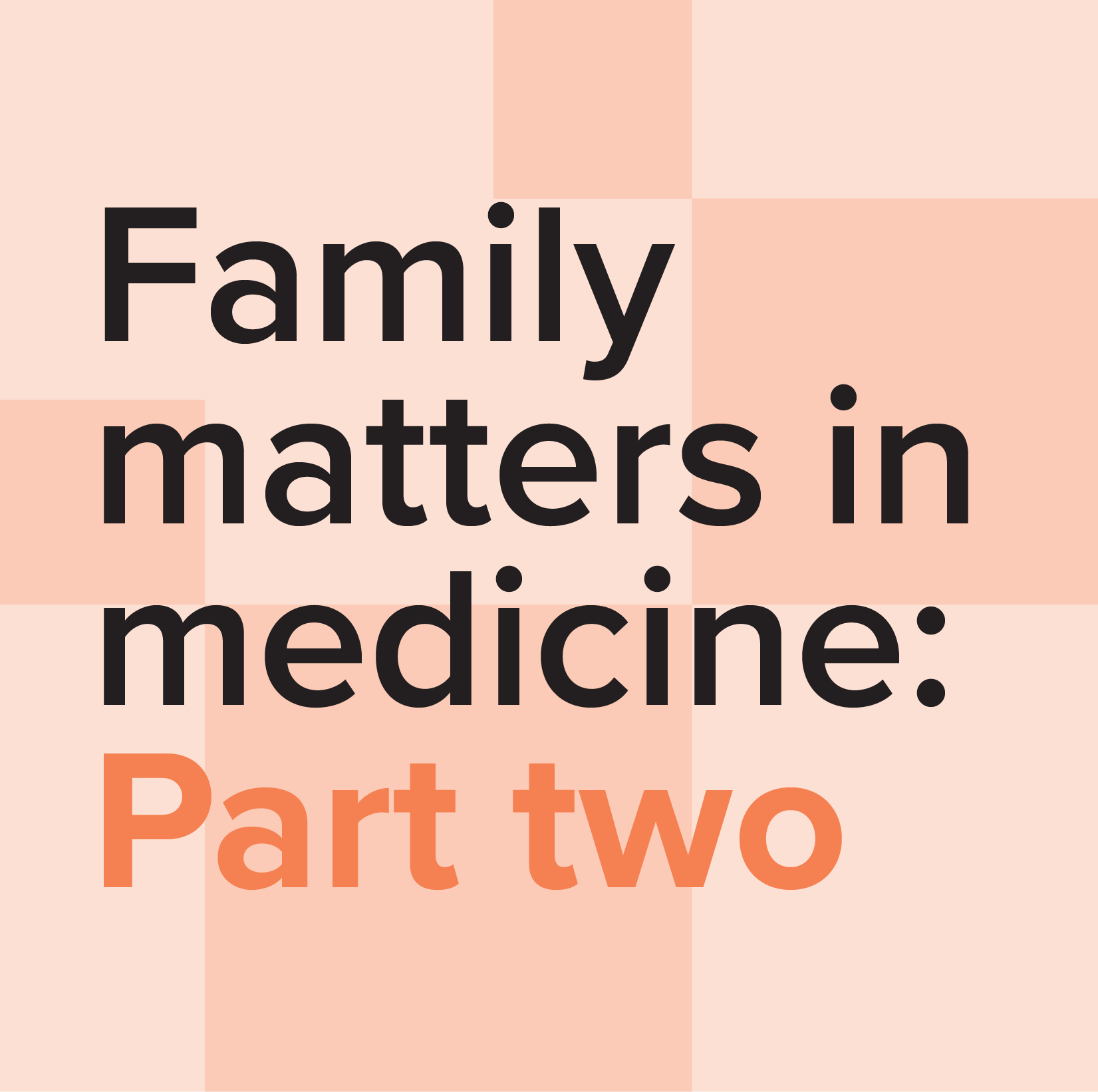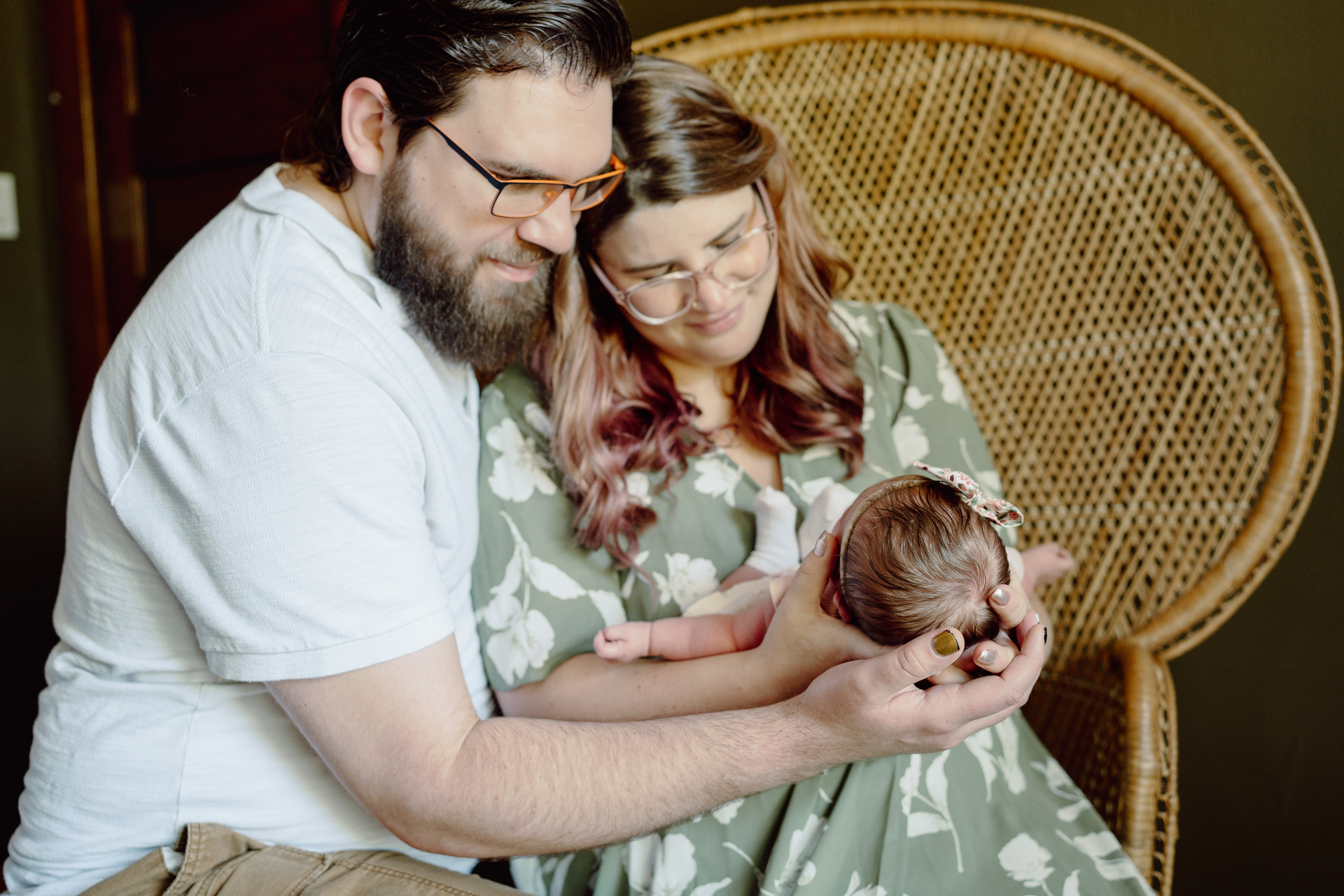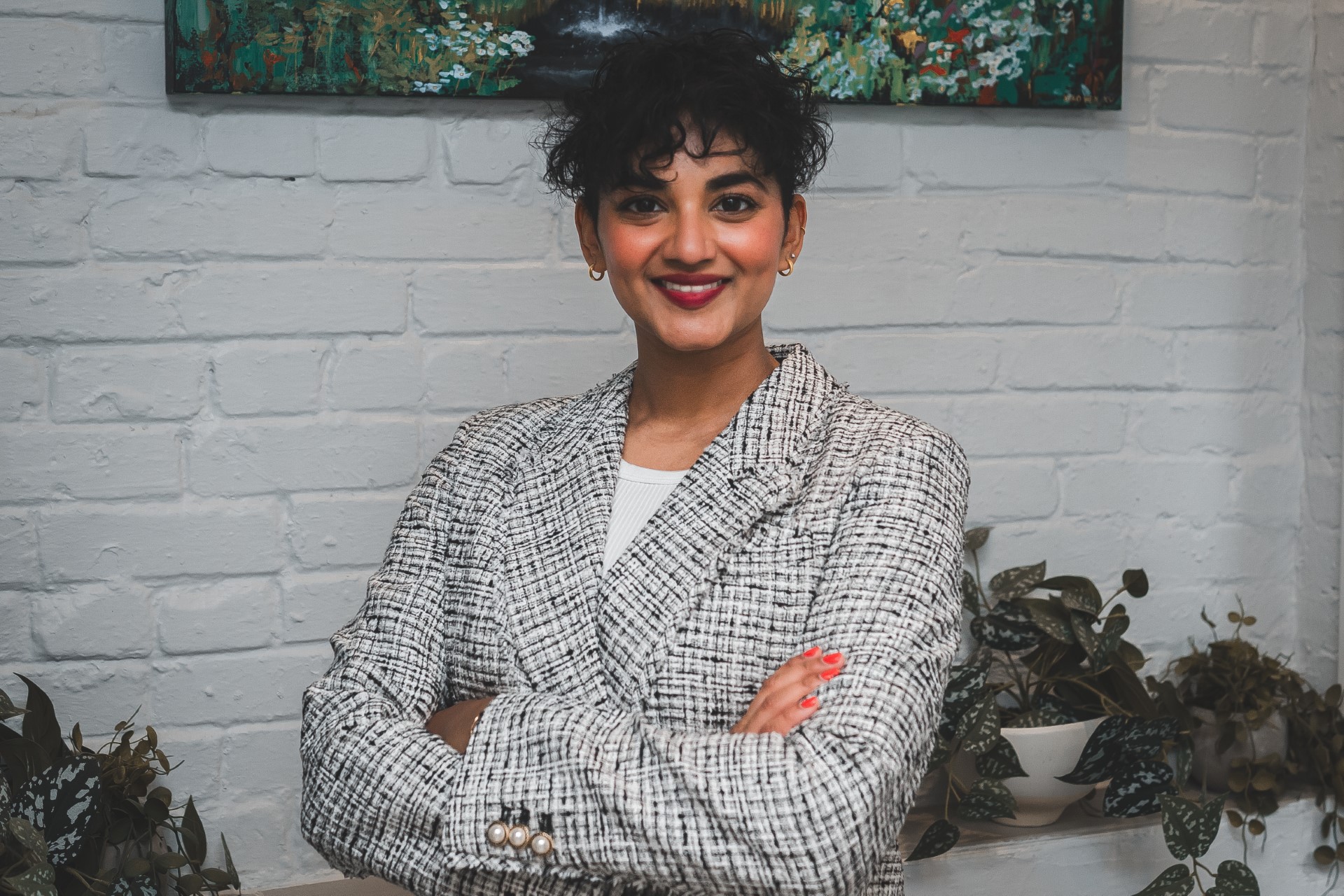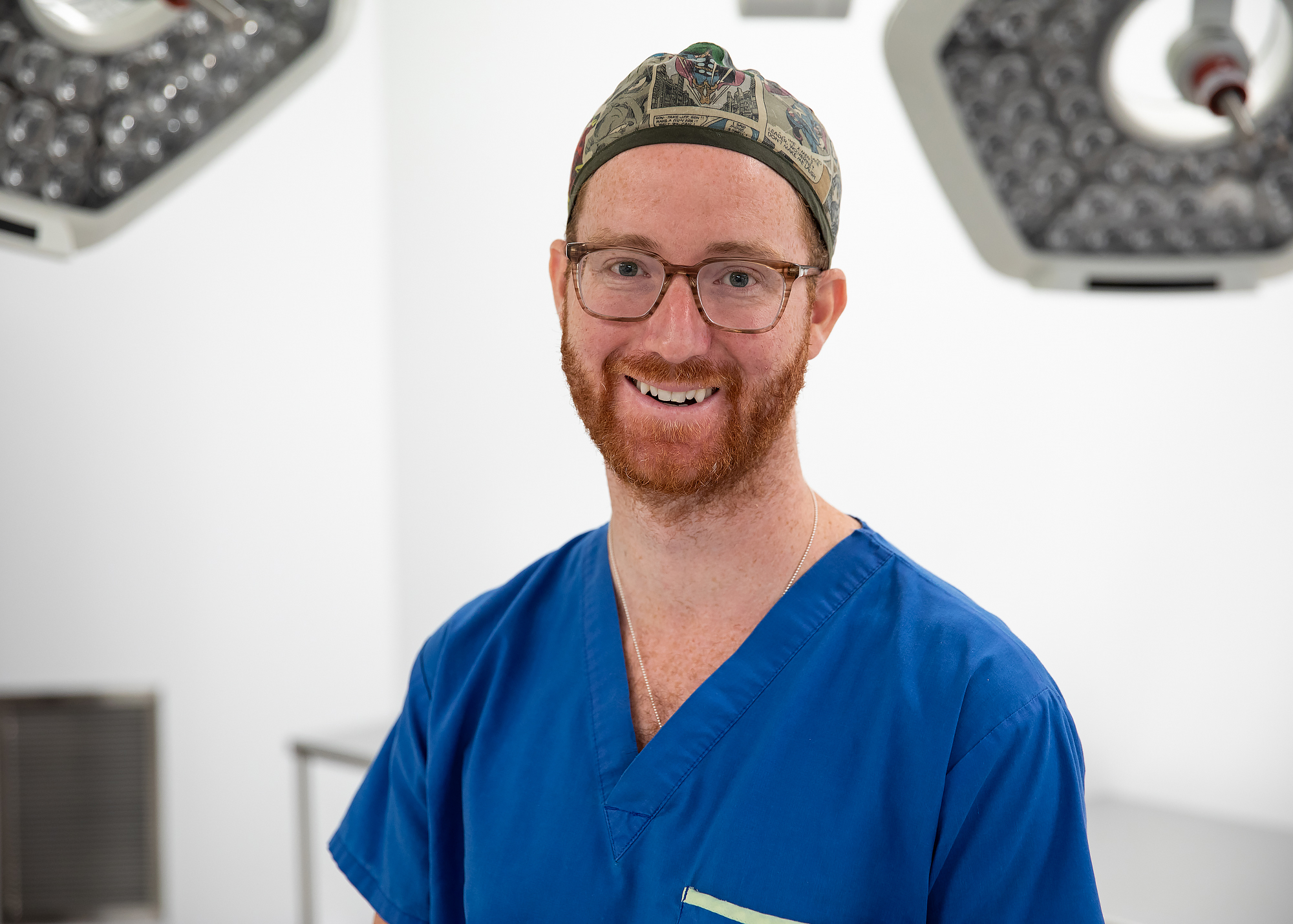Back to work six weeks postpartum. Missing the birth of your child to write your licensing exam. Two doctors share their experiences balancing parenthood in the field of medicine
In the second of a two-part series, we explore the difficulties and barriers in balancing parental leave with a career in medicine. This series was inspired by a response from a member to our story intake form. Read part one here.
Pregnancy is usually a time filled with eager anticipation, but for Dr. Heather MacKenzie in southwest Ontario, the months before her pregnancy were marred by anxiety as she struggled to find locum coverage for her practice during her maternity leave.
Now a few weeks postpartum, she doesn’t have a locum lined up to cover most of her maternity leave.
“I started looking for a locum probably around November, so to give it a good six months,” said Dr. MacKenzie, an endocrinology and metabolism specialist at a practice in Cambridge. The process was a mix of posting on job boards, online forums and Facebook groups, placing classified ads through the OMA and speaking with colleagues.
“I’ve had a lot of people reach out to their contacts and things like that as well,” she said. But the search for coverage for her maternity leave has stretched on.
She managed to find someone who could cover part of her maternity leave, for about three or four months, but the locum in question won’t be available until her baby is about six months old. But even that hasn't been locked down yet. As a result, she’s taking just six weeks off to recover after her child’s birth.
“The amount of stress has just increased, because now I’m not able to spend most of the time post-delivery with my child,” Dr. MacKenzie said. One of the more punishing implications of this situation is that it may limit how much she can breastfeed her child.

 Her husband, who is an audiologist, has arranged to take some paternity leave to care for the baby so that she can return to work after six weeks, a situation they had not anticipated. Since they want the baby to be breastfed, she will try to pump between patients and her husband will come periodically to pick up the breastmilk.
Her husband, who is an audiologist, has arranged to take some paternity leave to care for the baby so that she can return to work after six weeks, a situation they had not anticipated. Since they want the baby to be breastfed, she will try to pump between patients and her husband will come periodically to pick up the breastmilk.
Dr. MacKenzie is surprised no one has shown interest in taking over her practice during her maternity leave.
“I built the practice from the ground up with the help of a colleague, so everything’s there for a locum,” she said. “Admin coverage, rent, everything is all arranged.”
The difficulty in finding a locum rubs salt in the wound for her and her husband, who conceived their child through IVF due to health reasons.
“We’re kind of limited to one (biological child) for health reasons,” said Dr. MacKenzie, who added that she would think carefully about having further children in any scenario, “given the fact that I don’t have the ability to take leave.”
Dr. Heather MacKenzie is an endocrinology and metabolism specialist at a practice in Cambridge. Dr. MacKenzie is pictured with her husband, Scott McGinley, and daughter Elliott McGinley, who was born in May 2024.
Physicians often worry about what they will do if they can’t find a locum to cover their maternity/paternity leave, making them wonder if they’ll have to shorten their time off or even close their practice because they can’t cover the overhead.
 Dr. Shirin Dason, a reproductive endocrinology and infertility specialist at TRIO Fertility clinic in Toronto, said she was fortunate in her family situation.
Dr. Shirin Dason, a reproductive endocrinology and infertility specialist at TRIO Fertility clinic in Toronto, said she was fortunate in her family situation.
Her husband’s lawyer’s salary provided the financial support they needed when she had their first child during her residency.
“My situation is not the norm,” she said. Even with parental leave and EI benefits available to residents, only those in a strong financial situation can typically afford to have children during residency because of a debt load averaging $84,172 for medical school expenses, according to The Association of Faculties of Medicine in Canada.
In response to member feedback and a clear interest in an expansion of the eligibility criteria, the OMA negotiated additional funding and substantial reforms to the provincial Pregnancy and Parental Leave Benefit Program under the 2021 PSA.
In its Year 1 arbitration brief for the 2024-28 PSA, the OMA proposes to increase the weekly maximum of the Pregnancy and Parental Leave Benefit Program to $2000 a week and the maximum length of leave from 17 to 26 weeks.
As of April 1, 2022, physicians get an increased maximum benefit amount of $1,300, a longer eligible leave period of up to 17 weeks, more time to apply and a higher percentage – 75 per cent – used to calculate pre-leave income, to name a few of the changes. These benefits apply to all physicians, including those becoming parents through adoption or surrogacy.
 The OMA is proposing, in its Year 1 arbitration brief for the 2024-28 PSA, to increase the weekly maximum for the Pregnancy and Parental Leave Benefit Program to $2,000 a week and the maximum length of leave from 17 to 26 weeks.
The OMA is proposing, in its Year 1 arbitration brief for the 2024-28 PSA, to increase the weekly maximum for the Pregnancy and Parental Leave Benefit Program to $2,000 a week and the maximum length of leave from 17 to 26 weeks.
Dr. Dason and her husband now have two children, both born during her residency. While she always envisioned having three or four children, she thinks the current structure of medicine and the available supports for physicians may make this difficult.
“I am terrified to try to figure out how to have a third child in my practice. I don’t know how that’s going to look,” she said.
“And so, I think my medical career may limit what my ideal family size was.”
Dr. Dason said she looks forward to bringing these issues to the forefront of the dialogue happening now on the state of our health-care system.
“Progress is made in increments,” she said. “Even if I change one person's mind to have the family that they want at the right time, I've made some change. And that's enough for me.”
Dr. Shirin Dason is a reproductive endocrinology and infertility specialist at TRIO Fertility clinic in Toronto. She is a married mother of two.
 Dr. Christopher Wallis, a 37-year-old father of two, has learned that balancing fatherhood with a demanding career requires consistently setting boundaries with work.
Dr. Christopher Wallis, a 37-year-old father of two, has learned that balancing fatherhood with a demanding career requires consistently setting boundaries with work.
He met his wife during his residency. She became pregnant during his fourth year, and he was able to take a short paternity leave.
“I really, really struggled with the combination of the demands of residency, studying for a royal college exam and being any sort of parent and spouse,” said Dr. Wallis, a urologic oncologist at Mount Sinai Hospital and the University Health Network and an assistant professor at the University of Toronto.
Dr. Wallis wrote his licensing exam amid a huge life event competing for his attention – the birth of his second child.
“I went straight from writing the exam to the hospital,” he said, adding that his wife didn’t want him to delay writing the exam, as it would have meant another year of study.
Dr. Christopher Wallis is a urologic oncologist at Mount Sinai Hospital and the University Health Network and an assistant professor at the University of Toronto. He is a married father of two.
“In the subsequent weeks I had to prepare for the oral exam with a newborn and a not-yet-two-year-old at home,” said Dr. Wallis, who emphasized that his wife played a huge role in raising their kids at that time so that he could study.
In the years after, they balanced his fellowship with raising two small children, a situation, made more difficult because he had little control over his schedule. He said this impacted, at the time, his relationship with his wife.
situation, made more difficult because he had little control over his schedule. He said this impacted, at the time, his relationship with his wife.
Dr. Wallis prioritizes his family more as he continues building his career, but he said finding a happy balance is “a constant struggle.”
He believes there is a culture shift happening in medicine, with younger male physicians prioritizing their families more than those of previous generations.
“Family is a higher priority, I would say, amongst my peers than I’ve observed it to have been amongst older colleagues. I’ve got many older colleagues who say, almost as a point of pride, that they were in the OR operating on a patient when their children were born.
“To me, that’s something I can’t comprehend, wanting to be in that situation. Many physicians want to prioritize a greater work-life balance," Dr. Wallis said.
He said he actively brings up these issues in his work sphere in an effort to normalize making life decisions and career choices around one’s family goals.
“I think it would be incredibly valuable if this was a higher priority for all of medicine,” he said. “I’m hopeful that it’s a conversation that’s more normalized amongst all physicians, and not just as just a maternity leave-motherhood issue.”
Jessica Smith is a staff writer at the OMA.